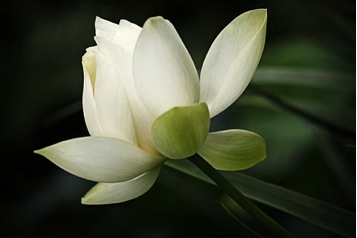
Case 24: Not Born Again
The Metta Sutta proclaims:
By not holding to fixed views,
The pure-hearted one, having clarity of vision,
Being freed from all sense desires,
Is not born again into this world.
BACKGROUND:
Metta Sutta The Metta, or “Loving Kindness,” Sutra contains some of the earliest canonical Buddhist teachings. It is found in the Suttanipata portion of the Pali canon.
Fixed views Refers to speculative thought or dogmatic opinions which become objects of attachment for the mind.
Sense desires The term refers not only to the objects of sense experience that inflame our desires, but to the desire for sense experience itself, the mind being so restless that it will produce sense experiences even where none are to be found, as for instance in dreams or deep meditation—or, alternatively, in a sensory deprivation tank.
Not born again In contrast to the Mahayana teachings, which stress the ideal of the bodhisattva, a being who chooses to be reborn again and again for the sake of suffering beings, the Theravada teachings stress as their goal a complete release from the wheel of birth and death through the attainment of nibbana, often translated as the “extinction” (of desires).
COMMENTARY:
How is it not possible to be reborn into this world? Consider the following, drafted by the Stockholm Conference in 1972 (predecessor to the 1997 Kyoto Accord):
Life holds to one central truth: that all matter and energy needed for life moves in great closed circles from which nothing escapes and to which only the driving fire of the sun is added. Life devours itself: everything that eats is itself eaten; every chemical that is made by life can be broken down by life; all the sunlight that can be used is used. Of all that there is on earth, nothing is taken away by life, and nothing is added by life—but nearly everything is used by life, used and reused in thousands of complex ways, moved through vast chains of plants and animals and back again to the beginning.
There is no escape from this “one central truth,” these “vast chains of plants and animals”—nor does there need to be. If the cessation of birth really exists (in other words, if nirvana is true) it must be true to this one central truth. But how? How can we escape the wheel of birth and death when the wheel of birth and death is the very thing that saves us, holding us so close to its vast body that, in truth, no separation could possibly exist? Does the planetary ecology defy the basic teachings of Buddhism? Does Buddha defy the Earth? Where exactly is this nirvana—and don’t say, “Nowhere”!
VERSE:
Nothing is taken
Away by death, and nothing
Is added by life.
The stem says to the lotus,
“I am always in the world!”
Thank you for subscribing to Tricycle! As a nonprofit, we depend on readers like you to keep Buddhist teachings and practices widely available.